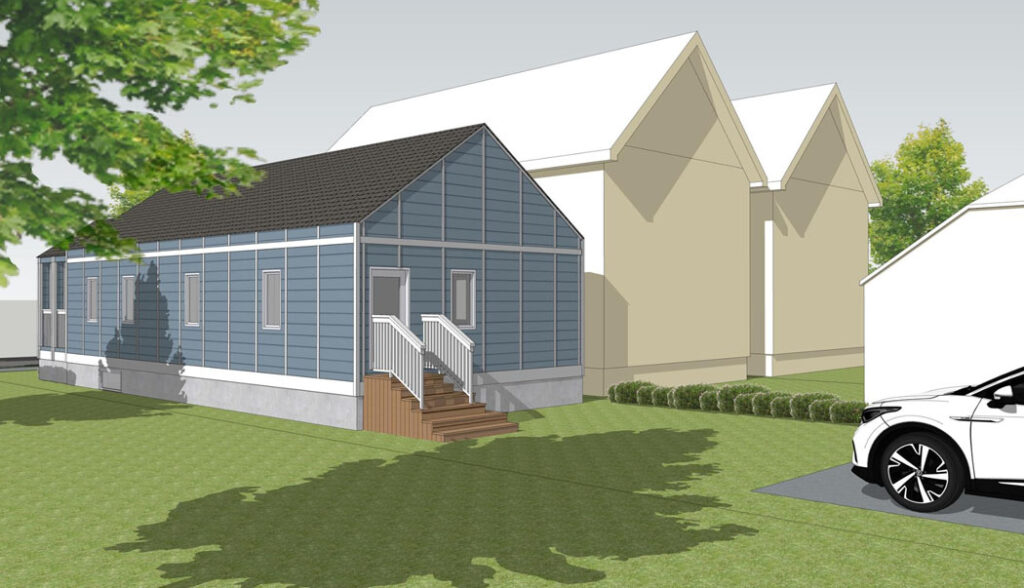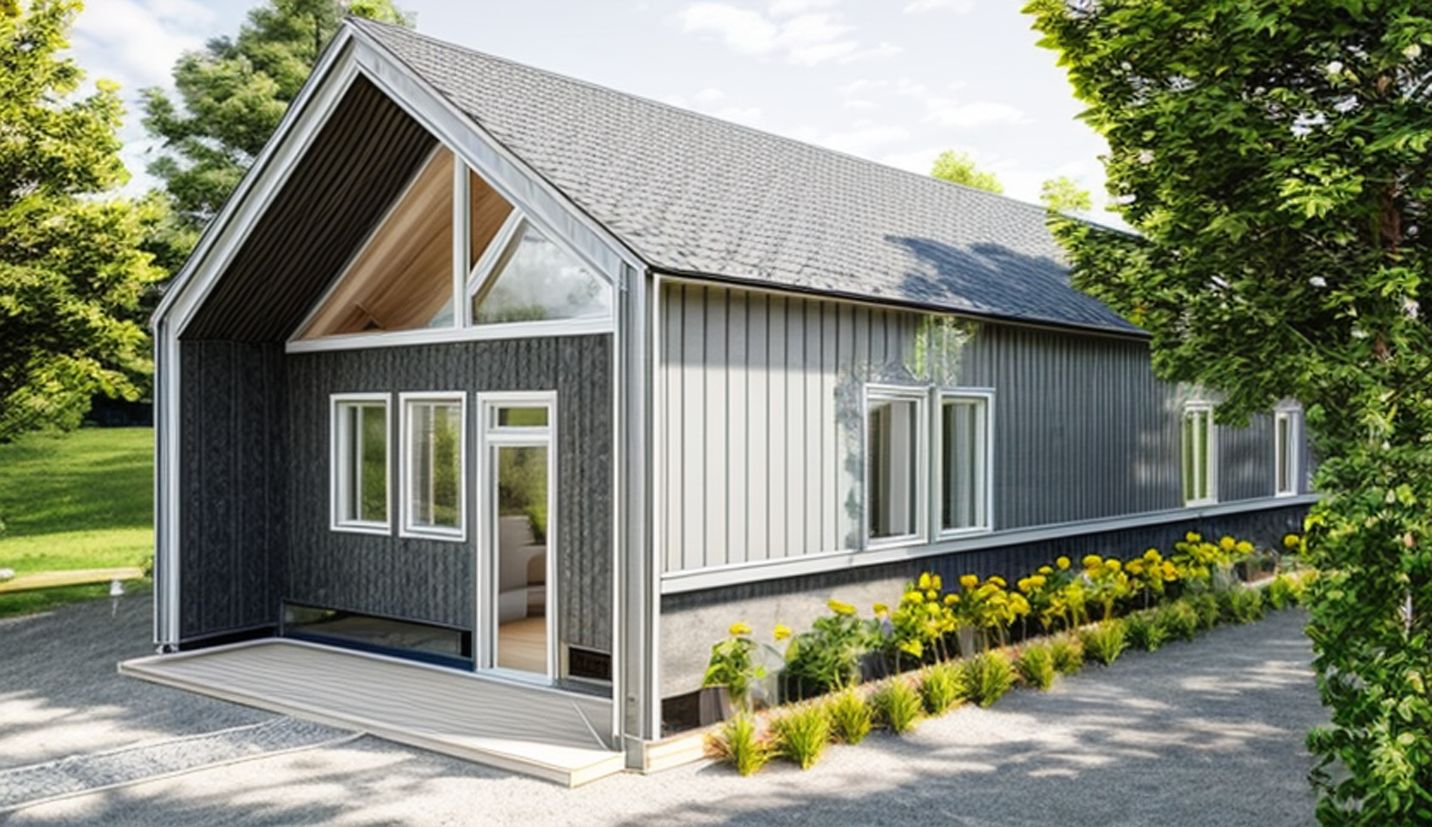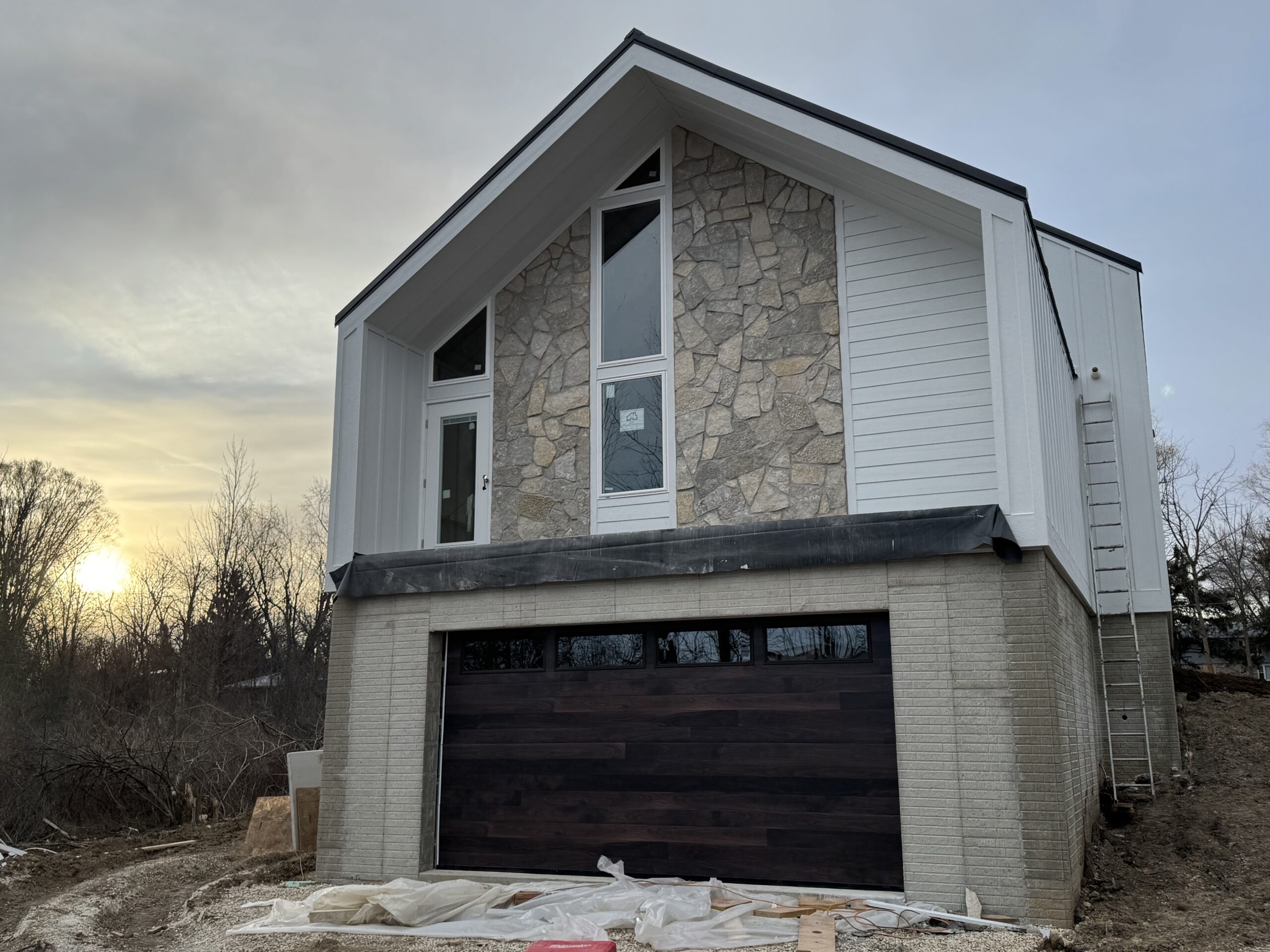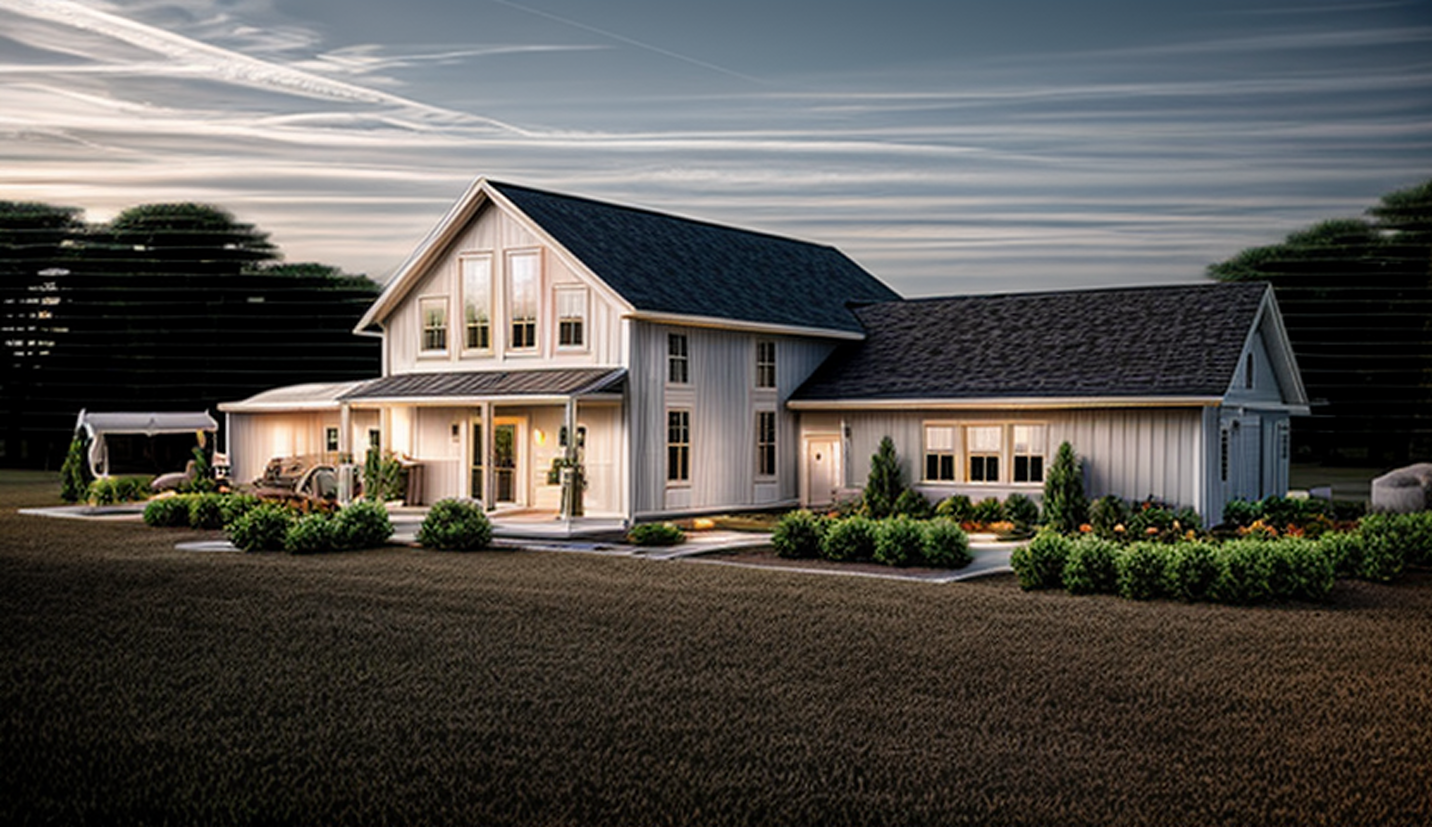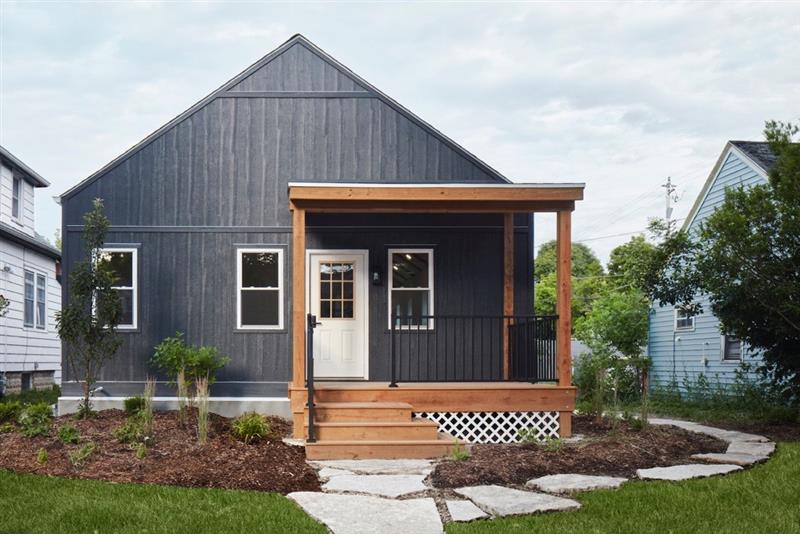View original article on Urban Milwaukee
VIA CDC, a southside-focused nonprofit in Milwaukee, is breaking new ground in the realm of affordable housing. The organization is set to pioneer a revolutionary construction system that promises to transform the city’s housing landscape.
In a bid to provide affordable homes to lower-income owner-occupants, VIA CDC is embarking on an ambitious project to construct partially factory-built houses. These innovative homes will be rapidly assembled on vacant lots and offered at an astonishingly low price point of $100,000.

VIA CDC’s journey into affordable housing began with its Turnkey Renovation Program, which has successfully rehabilitated 33 vacant, city-owned homes since 2008. Over the years, the organization expanded its efforts to include property renovations for the Milwaukee Community Land Trust and the construction of new homes for early childhood educators through the Community Development Alliance (CDA).
Despite these commendable initiatives, there remains a pressing need for safe, accessible, and affordable housing for many in Milwaukee. VIA CDC’s Executive Director, JoAnna Bautch, underscored this point during a recent groundbreaking ceremony, marking the launch of their groundbreaking affordable housing project.
The new undertaking aims to construct and sell three energy-efficient, entry-level homes priced for individuals earning between $16 to $24 per hour. These three-bedroom, 1,100-square-foot houses are set to make a significant impact in a city where affordable housing options have been scarce.
Alderwoman JoCasta Zamarripa emphasized the significance of this initiative for Milwaukee’s Black and Latino families, citing that there is a massive demand for first-time homeownership among these communities. The gap between supply and demand is stark, with only 1,000 homes available for the 17,000 families ready to make the leap into homeownership.
Collaboration is at the heart of this ambitious project. VIA CDC, CDA, and local businesses have joined forces to address Milwaukee’s housing crisis comprehensively. The CDA’s mission to create 32,000 new Black and Latino homeowners over three decades aligns perfectly with VIA CDC’s vision.
The partnership between VIA CDC and Lange Bros. Woodwork Co., a fourth-generation Milwaukee company, was instrumental in turning this dream into reality. Lange Bros. introduced a game-changing factory-built housing concept called “Lange Urban Sustainable Housing” (LUSH), designed as a zero-waste system.
 In the LUSH model, recycled wood pieces are precisely cut in a factory by CNC machines, assembled into structural components, and then transported to the housing site for installation on a foundation. The VIA structures are set to be assembled in just four days, demonstrating the efficiency of this innovative approach.
In the LUSH model, recycled wood pieces are precisely cut in a factory by CNC machines, assembled into structural components, and then transported to the housing site for installation on a foundation. The VIA structures are set to be assembled in just four days, demonstrating the efficiency of this innovative approach.
Randy Lange, CEO of Lange Bros., likened the construction process to a “Lego kit,” with pre-cut mount points that simplify assembly. Each beam structure, supporting a 100-square-foot area, comprises 120 specially cut plywood pieces. The system reduces the need for on-site drilling and nailing, further streamlining the construction process.
The goal is clear: to build energy-efficient homes faster and more affordably than traditional methods. This approach also opens the door for smaller, community-focused contractors to participate in building these homes, fostering local economic growth.
Martin Rizo of Rizo’s General Construction will take charge of general contracting for VIA’s pilot homes, slated for the Amani, Washington Park, and Silver City neighborhoods. These homes are expected to be completed by the spring, significantly contributing to the availability of affordable housing in these areas.
The LUSH beam structure, featuring 18-foot-tall ceilings and well-insulated exterior walls, promises substantially lower energy bills compared to older homes. Its flexibility in design allows for interior walls to be placed as desired, without the constraints of interior supports.
Beyond VIA’s three homes, Lange Bros. is testing its LUSH concept by constructing a 1,500-square-foot test home, complete with a 650-square-foot garage and detached structure, to further refine the innovative approach.
The LUSH model’s adaptability is another key advantage. It can support structures of varying sizes, making it a versatile solution for addressing Milwaukee’s housing needs. The model draws inspiration from European-centric WikiHouse open-source concepts, green-building standards, and Habitat for Humanity’s volunteer-driven approach.
Components for all LUSH houses are manufactured in the former Milwaukee Lead Works building, offering the potential for scalability and cost reduction in the future. As the project expands, VIA CDC aims to lower construction costs to make these homes even more accessible.
The project has garnered support from various philanthropic groups, including the Zilber Family Foundation, Northwestern Mutual, Forward Community Investments, Bader Philanthropies, Impact100, and Wells Fargo. The Dominican Center and United Methodist Children’s Services are also contributing to the initiative, further highlighting the community-wide collaboration driving this endeavor.
The future is bright for VIA CDC’s affordable housing project, with construction expected to commence soon. Milwaukee’s housing landscape is on the cusp of a significant transformation, thanks to the innovative LUSH construction method and the unwavering commitment of organizations and individuals dedicated to addressing the city’s housing challenges head-on.

